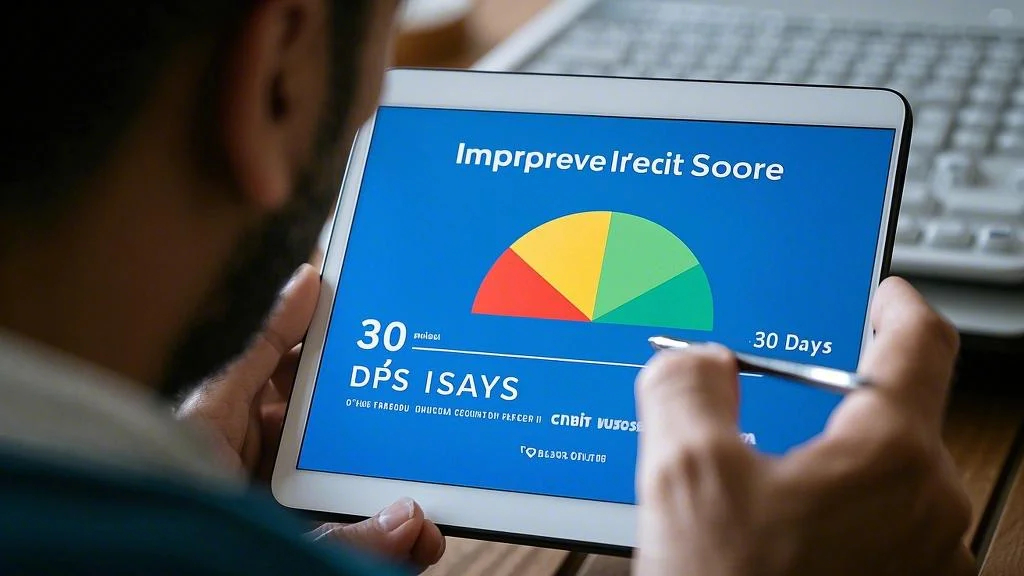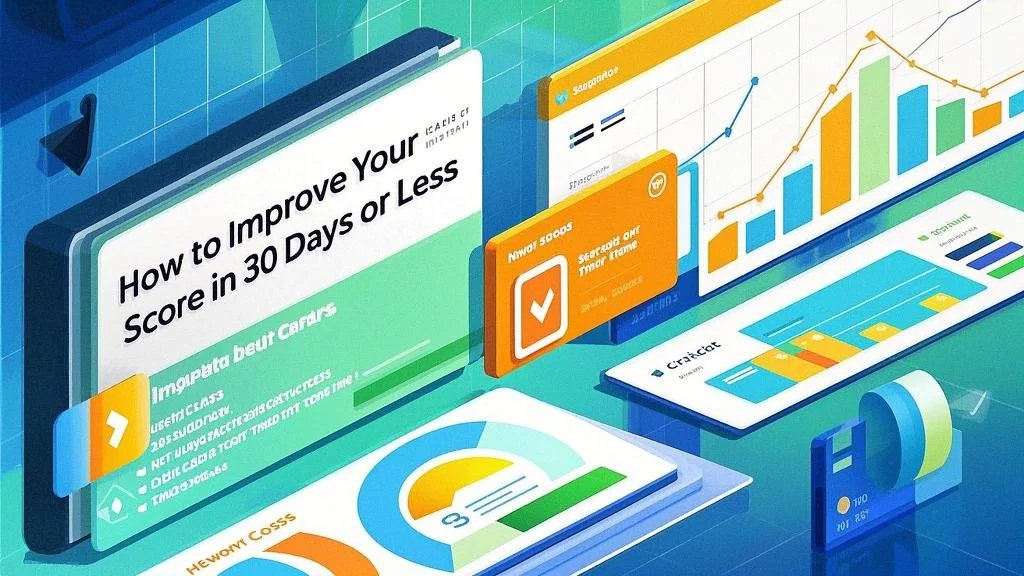How to Improve Your Credit Score in 30 Days or Less

Why Improving Your Credit Score Quickly Matters
Your credit score is a critical factor in your financial life, influencing everything from loan approvals to interest rates and even job opportunities. If you’re looking to improve your credit score in 30 days or less, it’s important to understand why this matters. A higher credit score can unlock better financial opportunities, such as lower interest rates on loans and credit cards, higher credit limits, and even approval for rental applications. Whether you’re planning to make a major purchase, refinance a loan, or simply improve your financial health, boosting your credit score quickly can have a significant impact on your overall financial well-being.
One of the key reasons to focus on improving your credit score quickly is the immediate benefits it can provide. For example, a higher credit score can result in lower interest rates, which can save you thousands of dollars over the life of a loan. Additionally, a better credit score can improve your chances of being approved for credit, giving you more financial flexibility. By taking proactive steps to improve your credit score, you can set yourself up for financial success and achieve your goals faster. Whether you’re working with a best credit repair service or taking a DIY approach, the strategies outlined below can help you see results in as little as 30 days.
Step 1: Check Your Credit Report for Errors
The first step to improving your credit score quickly is to review your credit report for errors. Errors on your credit report, such as incorrect account information or fraudulent activity, can significantly lower your score. By disputing these errors with the credit bureaus, you can have them removed, resulting in an immediate boost to your score. Start by obtaining a free copy of your credit report from each of the three major credit bureaus—Equifax, Experian, and TransUnion—through AnnualCreditReport.com. Carefully review each report for inaccuracies, such as accounts you don’t recognize, incorrect balances, or late payments that you believe were made on time.
Once you’ve identified any errors, file a dispute with the credit bureau reporting the inaccuracy. You can typically do this online, by mail, or over the phone. The credit bureau is required to investigate your dispute and respond within 30 days. If the error is corrected, your credit score should improve almost immediately. This is one of the fastest and most effective ways to improve your credit score, and it’s a critical first step in any credit repair strategy. Additionally, consider signing up for a credit score monitoring service to keep track of any changes to your credit report and ensure your score remains on track.

Step 2: Reduce Your Credit Utilization Ratio
Your credit utilization ratio is one of the most important factors in your credit score, accounting for 30% of your overall score. This ratio measures the amount of credit you’re using compared to your total available credit, and keeping it low is essential for a high score. Ideally, you should aim to keep your credit utilization below 30%, but for the best results, aim for 10% or lower. One of the fastest ways to reduce your credit utilization is to pay down high balances on your credit cards. This not only lowers your utilization ratio but also reduces the amount of interest you’ll pay over time.
Another effective credit utilization tip is to request a credit limit increase. By increasing your available credit, you can lower your utilization ratio without reducing your spending. However, it’s important to use this strategy responsibly, as increasing your credit limit can tempt you to spend more. Additionally, consider spreading your balances across multiple cards to keep your utilization low on each account. If you’re unable to pay down your balances quickly, another option is to use a balance transfer card to consolidate your debt and lower your utilization ratio. By managing your credit utilization effectively, you can improve your credit score in as little as 30 days.
Step 3: Become an Authorized User or Open a Secured Credit Card
If you’re looking to improve your credit score quickly, becoming an authorized user on a family member’s credit card or opening a secured credit card can be effective strategies. As an authorized user, you can benefit from the primary cardholder’s positive credit history, which can help boost your score. However, it’s important to choose a cardholder with a good credit history and low credit utilization, as their habits will impact your score. Make sure the card issuer reports authorized user activity to the credit bureaus, as not all do.
Another option is to open a secured credit card. Secured cards require a cash deposit as collateral, which typically serves as your credit limit. By using the card responsibly and making timely payments, you can build positive credit history and improve your score. Some secured cards even offer the opportunity to upgrade to an unsecured card after demonstrating responsible use. Both of these strategies can provide a quick boost to your credit score, especially if you have a limited credit history or are recovering from past financial mistakes. By incorporating these tools into your credit repair plan, you can see significant improvements in just 30 days.
Step 4: Make Timely Payments and Avoid New Credit Applications
One of the most important factors in your credit score is your payment history, which accounts for 35% of your FICO score. To improve your credit score quickly, it’s essential to make all your payments on time. Even one late payment can have a significant negative impact, so set up automatic payments or reminders to ensure you never miss a due date. If you have any past-due accounts, bring them current as soon as possible. While late payments can stay on your credit report for up to seven years, their impact diminishes over time, especially as you build a history of timely payments.
Another key strategy is to avoid applying for new credit during the 30-day period. Each time you apply for credit, a hard inquiry is placed on your credit report, which can lower your score by a few points. While the impact of a single inquiry is usually small, multiple inquiries in a short period can add up. Additionally, opening new accounts can lower the average age of your credit history, which is another factor in your credit score. By focusing on making timely payments and avoiding new credit applications, you can improve your credit score quickly and set yourself up for long-term financial success.